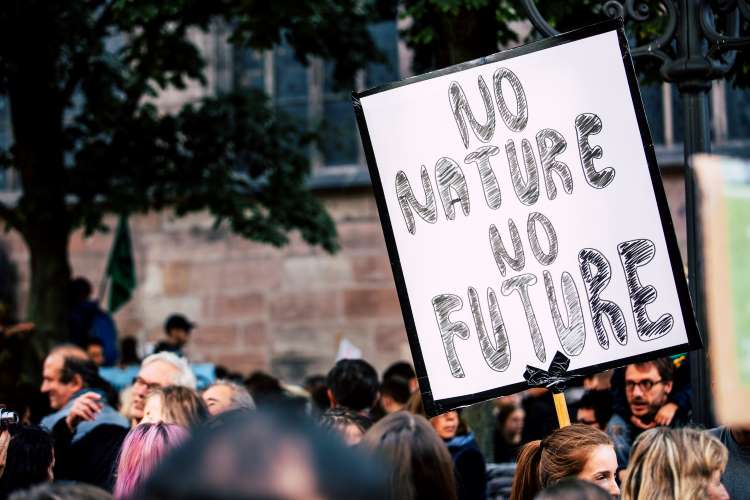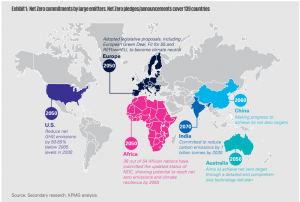
Climate finance has been a crucial topic in global discussions on climate change for years. Developed countries have promised to help developing nations cope with the fallouts of climate change and their transition to low-carbon economies. However, these promises remain unfulfilled. This has led some to doubt whether climate financing is a myth or a challenge. The reality is that financing the transition to a low-carbon, climate-resilient economy is the key to avoiding the worst impacts of climate change and to building a sustainable future for all.
The scale of the challenge is daunting, to say the least. Achieving net-zero emissions by 2050 will require global investments in clean energy and infrastructure to reach $4 trillion per year, says the International Energy Agency. The current global investment in clean energy stands at just $600 billion per year, leaving a significant financing gap that needs to be addressed.
The evidence suggests that meeting climate finance requirements is a tough challenge. The Paris Agreement of 2015 recognised the importance of providing financial resources to support developing countries in climate action, setting a goal of mobilising $100 billion per year by 2020. However, developed countries have fallen short of this goal. In fact, they have broken their promises, leaving developing countries to cope with the impact of climate change on their own.
READ I Climate change: Sweltering heatwave envelops the planet
The failure to provide adequate funding for climate action is particularly harmful to developing nations, which are often the most vulnerable to the effects of climate change. They lack the resources and infrastructure to adapt to the changing climate and the transition to low-carbon economies. As a result, climate change exacerbates poverty, inequality, and social unrest in the developing world.

At every Conference of Parties (COP), there are more discussions and promises about climate financing, but little action is taken. Developed countries are reluctant to provide the necessary funding, citing economic concerns as the reason for inaction. This is not only morally unacceptable, but also is a threat to global security and stability.
Climate financing is a critical issue that must be addressed immediately to avoid the worst consequences of climate change. Developed countries must fulfill the promises to provide financial resources to developing countries. They must do so in a way that is fair and equitable. Failure on this count will only exacerbate the climate crisis and make it more difficult to build a sustainable world.
Global South and climate finance
The Global South will be severely affected by climate change, but it has the least access to climate financing. This is a major injustice, and it must be addressed without delay to effectively combat climate change. The developing world is already grappling with the effects of climate change, manifested in the form of rising sea level, extreme weather events, and droughts. The impact has been devastating, and it is only going to get worse as the climate continues to change.
Without access to climate financing, developing countries are unable to implement adaptation and mitigation measures to protect themselves from these impacts. This makes them vulnerable to climate change, and makes it difficult for them to develop sustainably. The lack of adequate climate financing is not just a problem of developing countries, but a problem for the global community. If the developing countries are not the resources needed for climate adaptation and mitigation, the consequences would be devastating for the whole world.
There are several ways to address the challenge of climate financing for the Global South. One important step is to increase the flow of public finance from developed countries to developing countries. This can be achieved through a variety of mechanisms such as grants, concessional loans, and debt swaps.
Another important step is to promote private sector investment in climate finance. This can be done by creating favorable investment conditions, such as carbon pricing and risk mitigation mechanisms. It is important to build the capacity of developing countries to access and manage climate finance. This can be done through training, technical assistance, and capacity building initiatives. Climate financing is a complex challenge, but it can be addressed effectively. By working together, the nations can ensure that the developing world has enough resources for climate change adaptation and mitigation.
Innovative financing mechanisms
It is important to find ways to finance the low-carbon transition and innovative financing mechanisms can play a central role. Green bonds are one example of an innovative financing mechanism. Green bonds are a type of debt security that is issued to finance environmental projects. They have gained in popularity in recent years, and can provide ways for investors to support climate action.
Blended finance is another innovative financing mechanism. Blended finance combines public and private funds to fund climate projects. This can help to reduce the risk of investing in climate projects and make it easier for developing countries to access climate finance.
Climate risk insurance can also help climate change adaptation. Climate risk insurance can protect people and businesses from financial losses caused by climate change events. This can make it more attractive for investors to finance climate adaptation projects.
South-South cooperation can also play a role in financing climate change. South-South cooperation can help developing countries to share experiences and best practices in climate financing. This can help to improve the efficiency and effectiveness of climate finance. The root cause of climate change is fossil fuels. Developed nations should lead the transition to renewable energy. This transition will benefit the environment while creating new jobs and economic opportunities.
Climate change poses an existential threat to mankind. Failure to address this challenge will leave the world less prosperous, less equitable, and less secure. However, by rising to the challenge of climate financing, we can create a better world for ourselves and for future generations.
Srinath Sridharan is a strategic counsel with 25 years experience with leading corporates across diverse sectors including automobiles, e-commerce, advertising and financial services. He understands and ideates on intersection of finance, digital, contextual-finance, consumer, mobility, Urban transformation, and ESG. Actively engaged across growth policy conversations and public policy issues.

